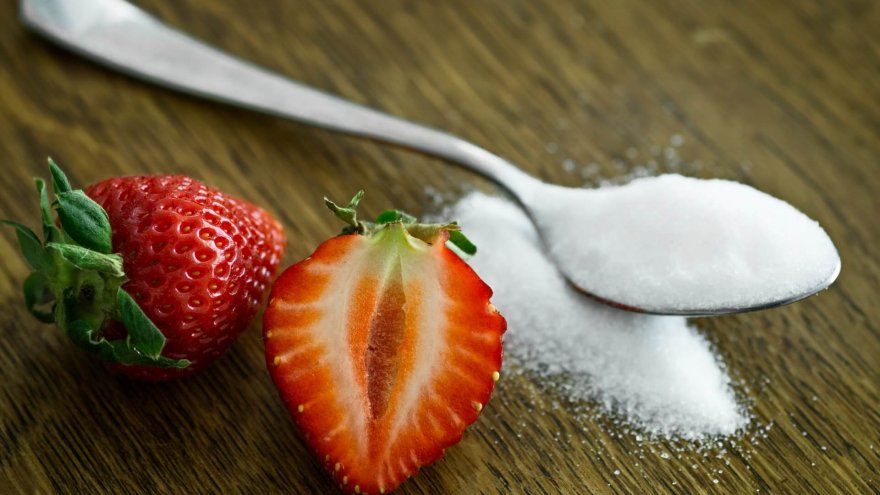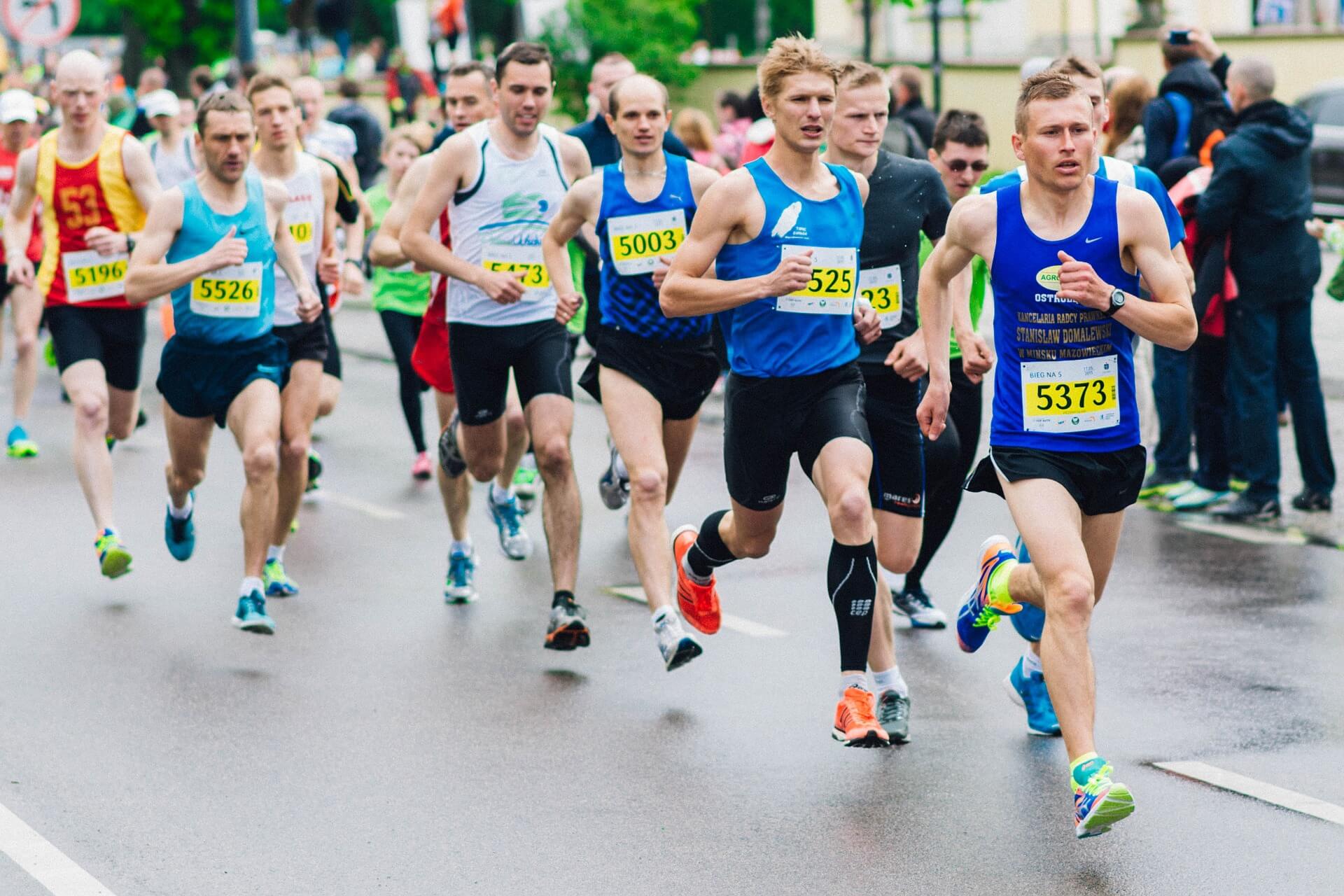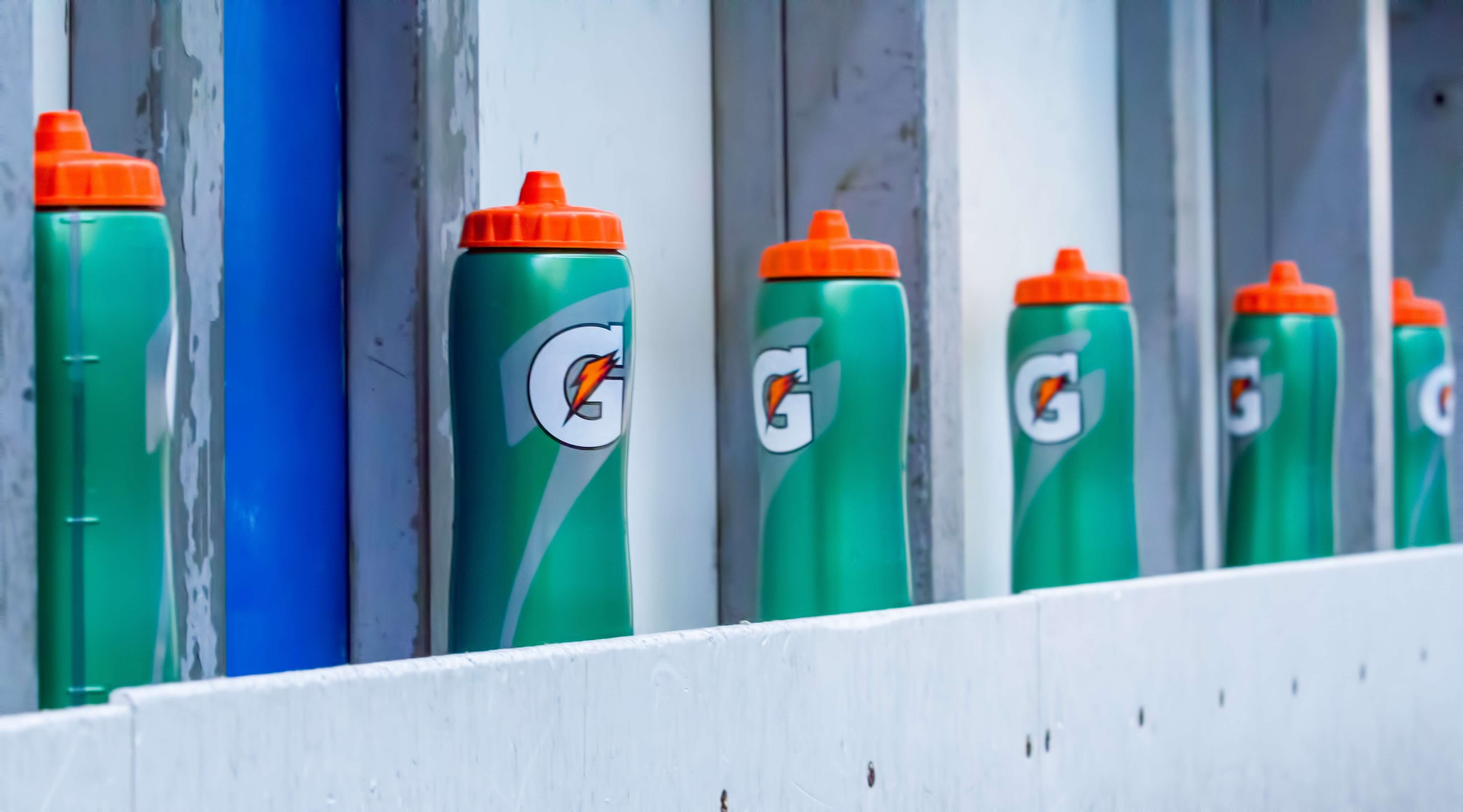Does Cutting Sugar Improve Performance?

Training to improve running performance requires much more than just logging miles day in and day out. Runners must also pay attention to other factors such as sleep quality, strength training, and nutrition. You will hear non-runners state that runners can eat whatever they want because they burn it all off. This is most definitely not the case, as eating high calorie, fattening foods every day will equate to many more calories than one can burn on a daily basis. Most runners seeking to improve their performance are not focused so much on weight management, but more so on how the food actually impacts their ability. A nutritious diet is not just good for overall health in general, but it will lead to better results in training.

Carbs, Carbs, and More Carbs
It is known that carbohydrates are the main source of fuel for runners, especially marathoners and ultra runners. Although complex carbs are emphasized in diets for the average person because they are slowly digested, more natural, and provide healthy nutrients, runners benefit from simple carbs such as white bread, white rice, and potatoes. Carbohydrates are all composed of sugar, which gets converted into glucose in the blood, followed by glycogen in the muscles. This is how runners get their fuel for long distances. Without this conversion, we would constantly be in low-energy mode and our training would never progress. The new fad diet that many athletes are trying is where sugar is limited but is this really a good idea?

The Importance of Sugar
Cutting sugar from the diet is actually hard to do because of the fact just mentioned—carbs are composed of sugar and runners NEED carbs. It is more important for runners to be a bit pickier about their sugars, though. Those simple sugars are good for something. White bread, potatoes, and fruit are ideal for runners to consume before any longer distance runs as they are digested and quickly turned into the glycogen our muscles require to keep us running fast. Whole grains and other complex carbs are an important part of any diet, but because of the high fiber content, runners may experience stomach issues during digestion. Runners trying to eat more whole grains all of the time and limit the simple carbs will only end up with a bloated belly and low on energy.
When to Limit Sugar
Although runners should not plan on cutting out sugar altogether if they want to improve their running performance, there is a time where it is needed most. Carbs are mostly needed before and during exercise. It is also very important to have more carbs afterwards to replenish the lost glycogen and for proper recovery, especially if you are performing a long run or race. It is beneficial to limit simple carbs at all other times in the day, but more for health reasons and not necessarily for performance enhancement.

Healthier Options
These days a more ‘natural’ diet is emphasized. Many of the sports drinks and mid-run fuel options are made with high fructose corn syrup and other artificial flavors, which are not ideal for a healthy diet. The body can only digest a certain amount of one type of sugar so these sports fueling sources are specifically formulated with a blend of different sugars to limit stomach issues during activity and to help with digestion. Therefore if choosing a ‘real food’ option to fuel up during a long run or race you must do this carefully as many natural sugar products do not have the same type of blend and consist of too much of one type of sugar. The good thing is that many sports nutrition companies have been making more all-natural products geared towards quick and smooth digestion for endurance athletes.
How Much Extra Sugar is Okay?
The recommended daily intake of added sugar for anybody is 10% of total calories per day. So, for a 2000-calorie per day diet, that comes out to 200 sugar calories, or 50 grams. This does not include sugars naturally found in foods such as fruit, but it does include the sugars found in sports drinks and gels. Therefore if consuming these before or during your runs, then you can meet this 50-gram quota easily just with that consumption. The rest of the day should be fueled with natural sugars. Of course, this does not mean you can never enjoy an extra cookie or piece of cake.

Moderation is always the key with any diet. As long as you are not overindulging in too much sugar on a daily basis, you are not going to be at a high risk of developing diabetes or other health problems. As far as performance goes, there is no evidence that too much sugar hinders any gains, but too little will definitely play a role in not achieving your full potential. The important thing to remember is sugar is fuel, and without it, you cannot power through those tough workouts.
Sources
Latest Articles
 Is Running on a Treadmill Easier Than Running Outside?Runners have their own preferences, whether it is treadmill running, running outside on the road, or exploring trails. So...
Is Running on a Treadmill Easier Than Running Outside?Runners have their own preferences, whether it is treadmill running, running outside on the road, or exploring trails. So... Is It OK to Use Trail Running Shoes on the Road?While trail running shoes can be used on roads, especially in situations where a runner encounters mixed terrains or pref...
Is It OK to Use Trail Running Shoes on the Road?While trail running shoes can be used on roads, especially in situations where a runner encounters mixed terrains or pref... How to Fix Sore Quads After Running?Rest, ice, gentle stretching, and over-the-counter pain relievers can help soothe sore quads after running. Also, ensure ...
How to Fix Sore Quads After Running?Rest, ice, gentle stretching, and over-the-counter pain relievers can help soothe sore quads after running. Also, ensure ... 10 Fruits With The Most Electrolytes to Replace Sports DrinksThese fruits are high in electrolytes such as potassium, magnesium, and calcium, essential for hydration, muscle function...
10 Fruits With The Most Electrolytes to Replace Sports DrinksThese fruits are high in electrolytes such as potassium, magnesium, and calcium, essential for hydration, muscle function...

